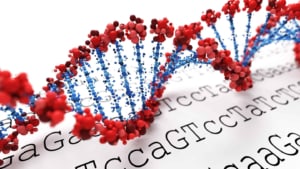Projects Funded by IAFNS
The Institute for the Advancement of Food and Nutrition Sciences catalyzes food safety and nutritional science for the benefit of public health. View projects* funded by IAFNS below.
Blood Fatty Acid Fingerprint to Predict Risk for Total Mortality
Circulating levels of blood fatty acids are being used to stratify patients into risk categories with regard to the development of chronic disease and death. The fatty acids most clearly associated with reduced risk for cardiovascular disease (CDV) and for […]
Read MoreSimulating Large-Number Bulk-Product Sampling to Improve Food Safety Sampling Plans
Drawing an accurate conclusion about whether a food ingredient or product is safe based on the result of a test is important to the evaluation and management of food safety risk. It is critical that sampling plans maximize the probability […]
Read MoreNutritional and Probiotic Development for the Pre-Term Gut Microbiome
The human intestine is home to dense and diverse communities of microorganisms, referred to as the gut microbiota. Ushered by the revolution in “omics,” the microbiota is implicated in numerous health and disease states. Despite the growing recognition of the […]
Read MoreAssessing Human Health Impacts of Global Adoption of Codex Deoxynivalenol (DON) Guidelines
Due to climate change, there has been an increase in occurrence of mycotoxins in food and food ingredients. Multiple strategies have been developed to reduce mycotoxin risks before harvest (in the field), after harvest (in storage, transportation, or processing), and […]
Read MoreIdentification And Quantitation Studies of Migrants from BPA Alternative Food-Contact Metal Can Coatings
Different compounds may enter the food supply, by intentional or unintentional addition, at various stages of the food chain. Advancements in analytical methodologies are allowing for progressively lower detection limits, resulting in unexpected and known substances being detected in food […]
Read MoreEvaluation of the Dose-Response for Peanut Allergen
Due to the potentially severe nature of the response and absence of approved treatments, allergic individuals have been advised to avoid the food of concern, and food allergens must be included in the ingredients lists of packaged food. However, with […]
Read MorePrecision Nutrition: How Combinatory Patterns of SNPs and Nutrition Interact with Mechanistic Elements of Lipid Metabolism
Genetic differences have been shown to explain why blood LDL-cholesterol increases in many people fed dairy fat, but in others this results in a neutral or decreased response LDL response. Likewise, specific genetic modifiers have been shown to predict why […]
Read MoreBest Practices for the Design, Laboratory Analysis, and Reporting of Trials Involving Fatty Acids
Differences in how samples are collected, analyzed, and reported hamper research reproducibility and translation into dietary guidance. The goal of this project is to develop best practices for measuring and reporting circulating fatty acids in blood. The resulting best practices […]
Read MoreEvaluating the Applicability of Read-Across Tools and High-Throughput Screening Data for Food Relevant Chemicals
The IAFNS Food and Chemical Safety Committee invests in the training and education of future scientists and leaders in the fields of food and chemical safety and food toxicology by supporting a Summer Fellowship Program for doctoral students. This project […]
Read MoreCamp DASH Ancillary Studies
The Camp DASH study trial will compare the effect of two dietary patterns and two levels of sodium intake on blood pressure and blood lipids in adolescents in the upper third of distribution for blood pressure. The two dietary patterns […]
Read MoreVitamin B12 and Perinatal Health: Elucidating Mechanisms and Biomarkers for Prevention of Birth Defects
Neural tube defects (NTDs) are one of the most common and severe birth defects in the United States and globally. Vitamin B12 deficiency and perturbations in one-carbon metabolism have been linked to common adverse pregnancy outcomes, including neural tube closure […]
Read MoreImpact of Fortification/Enrichment on Total Nutrient Intakes from Foods within Specific Groups by Socioeconomic Status
As part of its review every five years, the Dietary Guidelines Advisory Committee (DGAC) estimates the nutrient intake of the American population and identifies those nutrients of national concern. The Scientific Report of the 2015 DGAC identified “shortfall nutrients” and […]
Read More*Projects from 2013 and later are included in this repository. To view projects supported by IAFNS prior to 2013, please visit our Peer-Reviewed Publications page.











